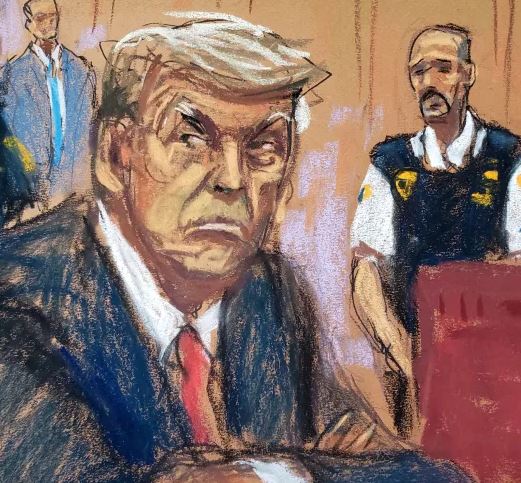
In a new development adding to the ongoing political conflicts in the United States, a federal judge has halted the enforcement of an executive order signed by former President Donald Trump regarding elections. The ruling came after a lawsuit filed by Democrats, who argued that the order was an “overreach of power.” This decision marks a victory for Democrats seeking to limit Trump’s influence on the electoral process, especially as preparations for the upcoming presidential election intensify.Judge Blocks Trump’s Election Order
Background of the Executive Order
In a controversial move, Trump signed an executive order aimed at implementing significant changes in how federal elections are administered, claiming that current procedures are “insecure” and lack transparency. The order included measures such as stricter voter ID requirements and restrictions on mail-in voting—policies criticized by Democrats as attempts to suppress votes from minorities and young voters, who tend to favor the Democratic Party.Judge Blocks Trump’s Election Order
Democratic Pushback and the Lawsuit
Democrats swiftly challenged the executive order, calling it politically motivated and a threat to election integrity. They filed a lawsuit in federal court, arguing that the president does not have the authority to unilaterally alter election laws without congressional approval.
During the hearing, the judge heard arguments from both sides. Trump’s legal team insisted the order was meant to “protect election integrity,” while Democrats maintained it was an “unconstitutional power grab.”
The Judge’s Ruling and Expert Reactions
The judge sided with Democrats, stating that the president had overstepped his constitutional authority and that election rules must be changed through legislation, not executive actions. The ruling emphasized that “the Constitution grants Congress, not the president, full authority to regulate elections.”
Legal experts noted that the decision sends a strong message that the judiciary will not allow constitutional overreach, regardless of political affiliation. Political analysts also viewed the ruling as a setback for Trump’s efforts to shape election laws, particularly as he considers another presidential run.
Political Reactions
- Democrats: Celebrated the decision, calling it a “victory for democracy.” House Speaker Nancy Pelosi stated, “This ruling confirms that no one is above the law—not even a former president.”
- Trump’s Allies: Criticized the ruling, accusing the judge of bias. Trump himself attacked the decision on Truth Social, calling the judicial system “corrupt and opposed to the will of the people.”
Impact on Future Elections
The legal battle is expected to continue, with Trump’s team likely to appeal. If the block remains in place, it could limit Trump’s ability to influence election laws, potentially reshaping campaign strategies for both parties.
Conclusion
This latest judicial ruling demonstrates that the fight over U.S. elections is far from over—and may grow even more intense as the next presidential race approaches. While Trump seeks to reshape the electoral system in his favor, Democrats and the judiciary stand as obstacles, ensuring that the political conflict will remain heated in the coming months.

[…] International Fan Concerns: Particularly among Latin American attendees given past immigration tensions. […]
[…] the Supreme Court appears to be avoiding any decisive rulings that could stop former President Donald Trump or limit his political and legal influence. This stance raises questions about the independence of […]